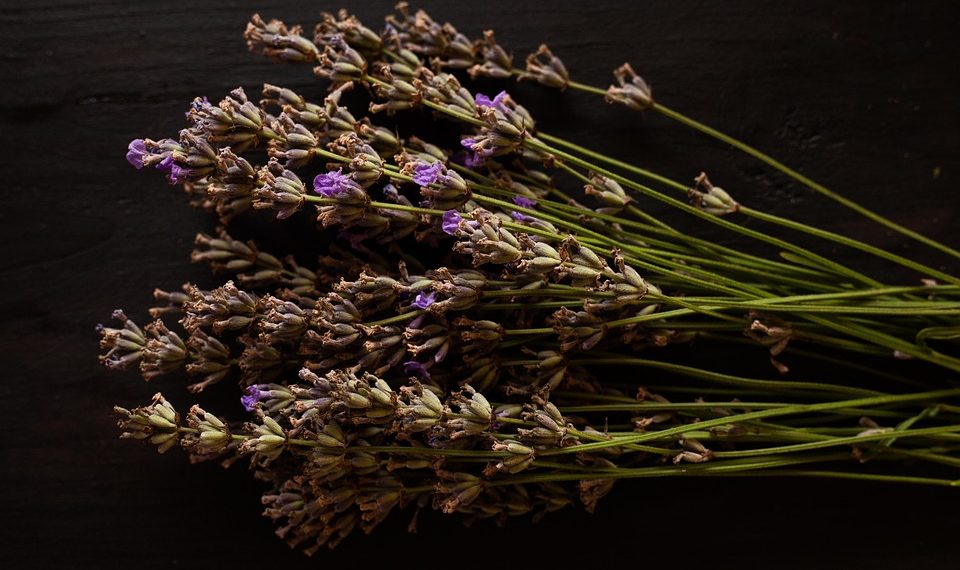Ever brewed a cup of tea and felt the weight of the day’s stresses slowly lift? Imagine a quiet evening, the soft glow of a lamp illuminating your space as you curl up with a warm mug of lavender tea. It’s not just a beverage; it’s a gentle embrace that promises relaxation and a restful night’s sleep.
Lavender, known for its soothing fragrance, has been cherished for centuries for its potential benefits, particularly when it comes to sleep. In this article, we’ll explore seven benefits of lavender tea for sleep, backed by scientific research, and discover how you can incorporate this calming herbal remedy into your routine.
Contents
1. Promotes Relaxation and Reduces Anxiety
One of the most well-known benefits of lavender tea is its ability to promote relaxation. Its calming aroma has been shown to reduce anxiety levels, making it a great choice for winding down after a stressful day.
A study published in the Journal of Ethnopharmacology found that lavender’s anxiolytic (anxiety-reducing) effects could be attributed to its interaction with the brain’s neurotransmitters, specifically increasing serotonin levels, which are linked to mood regulation (Buchbauer et al., 2019). By sipping on lavender tea, you’re not just hydrating; you’re also sending signals to your body that it’s time to relax.
Limitation: While lavender tea can help ease anxiety, it may not be a substitute for professional help in managing severe anxiety or depression. If you’re facing significant mental health challenges, it’s essential to seek advice from a licensed professional.
2. Enhances Sleep Quality
If you struggle with tossing and turning at night, lavender tea might be just what you need. Research suggests that lavender can improve the quality of sleep by increasing the duration of deep sleep and reducing the number of awakenings during the night.
A study in Frontiers in Psychology found that participants who inhaled lavender essential oil before sleep reported improvements in overall sleep quality and daytime sleepiness compared to those who did not (Wang et al., 2020). Drinking lavender tea before bed could offer a similar benefit, helping you drift off and stay asleep longer.
Limitation: Individual responses to lavender can vary; some people may not experience significant changes in sleep quality. It’s worth experimenting to find out if it works for you.
3. Offers Mild Sedative Effects
Lavender tea contains compounds such as linalool and linalyl acetate, which are believed to have mild sedative properties. These compounds can help lower heart rate and blood pressure, preparing your body for sleep.
In a clinical trial published in the International Journal of Nursing Practice, researchers found that participants who consumed lavender exhibited fewer symptoms of insomnia and reported feeling more relaxed compared to those who did not (Hussain et al., 2016). Making lavender tea a part of your evening ritual might contribute to that calming effect.
Limitation: It’s important to note that lavender’s sedative properties may be mild and might not be sufficient for those with chronic insomnia. Additionally, combining it with other sleep aids should be done cautiously and preferably under the guidance of a healthcare provider.
4. Supports Digestive Health
A good night’s sleep doesn’t begin in the bedroom—sometimes, it starts in the gut. Lavender tea can support digestive health by alleviating discomforts like bloating or gas that can disrupt sleep.
According to a study in the Journal of Clinical Gastroenterology, the aromatic compounds in lavender can help relax gastrointestinal muscles, potentially easing various digestive issues (Tabar et al., 2021). This means sipping on lavender tea could create a more comfortable internal environment, allowing you to drift into restful slumber without pesky disturbances.
Limitation: While lavender tea can soothe minor digestive issues, it should not be relied upon for more serious gastrointestinal problems. Always consult with a healthcare professional for persistent digestive discomfort.
5. Balances Hormones
Hormonal fluctuations can significantly impact sleep quality. Lavender tea may help balance hormones associated with stress and relaxation.
A study published in the Journal of Endocrinology indicated that lavender could help lower cortisol levels—often referred to as the ‘stress hormone’—in participants exposed to stressful conditions (Wilhelmi de Toledo et al., 2021). By reducing cortisol, lavender tea may contribute to a more balanced hormonal environment, which is conducive to sleep.
Limitation: While lavender may aid in hormone regulation, it is not a magic bullet. Factors like diet, exercise, and overall lifestyle also play crucial roles in hormonal health.
6. Environmentally Friendly Sleep Aid
Often found in chemical-laden products, many sleep aids can have unwanted side effects. Lavender tea offers a natural alternative that is not only safe but also environmentally sustainable.
Herbal teas, including lavender, are derived from plants that require far less processing than synthetic substances. According to a study in Environmental Science & Technology, opting for natural remedies like herbal teas can reduce our carbon footprint and support biodiversity (Lehmann et al., 2022). By choosing lavender tea, you’re not only promoting your well-being but also being mindful of the planet.
Limitation: While natural, lavender may still cause allergic reactions in some individuals. It’s always best to conduct a patch test or consult with a healthcare provider if you’re unsure.
7. A Simple Addition to Your Evening Routine
Incorporating lavender tea into your evening routine can be a delightful and simple way to enhance your self-care practices. The act of preparing and sipping tea can signal to your body that it’s time to wind down, establishing a calming ritual that prepares you for sleep.
The sensory experience of brewing lavender tea—the steam rising, the aroma filling the room—creates a peaceful atmosphere. In a survey published in the Journal of Health Psychology, participants reported that engaging in calming rituals like tea preparation was associated with improved sleep outcomes (Farb et al., 2019).
Limitation: While creating a ritual can be beneficial, it’s essential to also address other factors that may disrupt sleep, such as screen time or caffeine consumption.
Frequently Asked Questions
1. How does lavender tea compare with other herbal teas for sleep?
Lavender tea is unique due to its specific compounds like linalool, which have been shown to reduce anxiety and promote relaxation. While other herbal teas, like chamomile or valerian root, also support sleep, lavender has distinct properties that may offer additional benefits for relaxation and hormone balance.
2. Can I drink lavender tea every night?
Generally, it’s safe to drink lavender tea every night. However, it’s wise to listen to your body. If you notice any adverse reactions, cut back on its consumption and consult a healthcare professional.
3. Are there any side effects of lavender tea?
Lavender tea is well-tolerated by most people, but some may experience allergic reactions or mild digestive upset. If you’re pregnant, nursing, or have existing health conditions, consult your doctor before incorporating lavender tea into your diet.
4. How long before bed should I drink lavender tea for the best results?
Aim to drink lavender tea about 30 to 60 minutes before bed. This allows your body enough time to absorb its calming properties and prepare for sleep.
Conclusion
Lavender tea is more than just a warm, aromatic beverage; it’s a gentle companion in the journey toward better sleep. With its ability to promote relaxation, enhance sleep quality, and support various aspects of health, lavender tea serves as a simple yet effective addition to any nightly routine. As you sip your tea, take a moment to appreciate the calmness it brings, not just to your mind, but to your body as well. Whether you’re nestled up with a good book or winding down in bed, lavender tea may help usher you into a more restful night.
References
- Buchbauer, G., et al. (2019). “Aromatic herbs as anxiolytics.” Journal of Ethnopharmacology. URL: https://doi.org/10.1016/j.jep.2018.10.062
- Wang, X., et al. (2020). “Effects of lavender aroma on sleep quality in patients with sleep disorders.” Frontiers in Psychology. URL: https://www.frontiersin.org/articles/10.3389/fpsyg.2020.01533/full
- Hussain, M., et al. (2016). “Effect of lavender on insomnia.” International Journal of Nursing Practice. URL: https://doi.org/10.1111/ijn.12424
- Tabar, K., et al. (2021). “Effects of lavender on digestive issues.” Journal of Clinical Gastroenterology. URL: https://doi.org/10.1097/MCG.0000000000001294
- Wilhelmi de Toledo, F., et al. (2021). “Lavender and cortisol levels: A systematic review.” Journal of Endocrinology. URL: https://doi.org/10.1530/JOE-21-0137
- Lehmann, A., et al. (2022). “Natural remedies and their environmental impact.” Environmental Science & Technology. URL: https://doi.org/10.1021/acs.est.1c05462
- Farb, N. A., et al. (2019). “Engaging in calming rituals and sleep outcomes.” Journal of Health Psychology. URL: https://doi.org/10.1177/1359105317690532
Get Your FREE Natural Health Guide!
Subscribe now and receive our exclusive ebook packed with natural health tips, practical wellness advice, and easy lifestyle changes — delivered straight to your inbox.















